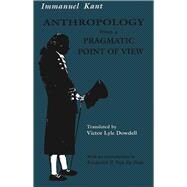
Victor L. Dowdell was an instructor in classics at Nashotah House, Wisconsin, and a dean and professor of Greek at St. Michael’s Seminary, Puerto Rico.
Hans H. Rudnick is a professor of English at Southern Illinois University at Carbondale.
| Preface | |
| Introduction | |
| Introduction | p. 3 |
| Anthropological Didactic | |
| On Being Conscious of One's Self | p. 9 |
| On Egoism | p. 10 |
| On Being Arbitrarily Conscious of One's Ideas | p. 14 |
| On Self-Observation | p. 15 |
| On the Ideas We Have without Being Aware of Them | p. 18 |
| On Distinctness and Indistinctness in Relation to the Consciousness of One's Ideas | p. 21 |
| On Sensibility in Contrast to Understanding | p. 24 |
| Apology for Sensibility | p. 28 |
| On the Potentiality of the Cognitive Faculty | p. 32 |
| On the Artificial Games Played with Sensory Perceptions | p. 35 |
| On the Admissible Moral Perception | p. 37 |
| On the Five Senses | p. 40 |
| On the Inner Sense | p. 49 |
| On the Causes of Increasing or Decreasing Sensory Perceptions According to Degree | p. 50 |
| On the Decreasing, Weakening, and Entire Loss of the Faculty of the Senses | p. 54 |
| On the Sensory Productive Faculty with All Its Branches | p. 64 |
| Of the Faculty of Visualizing the Past and the Future by means of the Imagination | p. 73 |
| On Involuntary Invention in a Sound Mental State, that is, on Dreams | p. 81 |
| On the Faculty of Designation (facultas signatrix) | p. 83 |
| On the Faculty of Cognition as Far as It Is Based on Understanding | p. 90 |
| Anthropological Comparison of the Three Higher Cognitive Faculties with Each Other | p. 91 |
| On the Soul's Weaknesses and Illnesses with Respect to Its Cognitive Faculty | p. 97 |
| On the Talents of the Cognitive Faculty | p. 118 |
| On the Specific Differences between the Comparative and the Argumentative Intelligence | p. 119 |
| On Sensuous Pleasure | p. 130 |
| On Emotion in Contrast to Passion | p. 156 |
| On the Emotions in Particular | p. 158 |
| On Passions | p. 172 |
| On the Highest Physical Good | p. 184 |
| On the Highest Ethicophysical Good | p. 185 |
| Anthropological Characterization | |
| The Character of the Person | p. 195 |
| The Character of the Sexes | p. 216 |
| The Character of Nations | p. 225 |
| On the Character of Races | p. 236 |
| On the Character of the Species | p. 237 |
| Notes | p. 255 |
| Index | p. 291 |
| Table of Contents provided by Blackwell. All Rights Reserved. |
The New copy of this book will include any supplemental materials advertised. Please check the title of the book to determine if it should include any access cards, study guides, lab manuals, CDs, etc.
The Used, Rental and eBook copies of this book are not guaranteed to include any supplemental materials. Typically, only the book itself is included. This is true even if the title states it includes any access cards, study guides, lab manuals, CDs, etc.